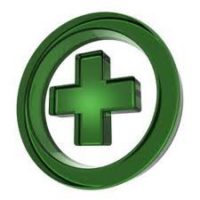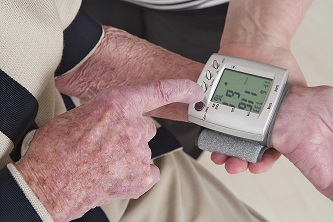What is a Certified Medication Aide?
A Certified Medication Aide (CMA) is someone who has passed the Medication Aide Certification Examination (MACE) and provides medication assistance to patients who are disabled or otherwise unable to entirely provide for their own health either in a hospital, home, or long-term care facility.
A CMA distributes and helps manage patients’ supplies of medications and monitors patients for signs of any adverse reactions to the medication.
Certified Medication Aide Description
Becoming a CMA can be a very beneficial for a Home Health Aide’s (HHA) career. With the certification, a HHA can legally handle a patient’s medications and give them to the patient.
Since most home bound patients are unable to completely care for themselves, having the legal ability to handle someone else’s drugs opens a lot of doors.
In addition, someone with a CMA certification can expect to earn more money per year and per hour than other HHAs or Certified Nursing Assistant (CNA) without any additional certification.
Prerequisites for CMAs
In certain states, one must first become a CNA or certified HHA before attending an endorsed CMA training course before taking the MACE.
In other states, only a high school diploma or GED is required before becoming a CMA.
The MACE is managed by the National Council of State Boards of Nursing (NCSBN), so the content of the exam is standardized across the United States.
Overall, the MACE tests for basic pharmaceutical knowledge, proper bedside manner, and methods for handling of drugs and monitoring for reactions.
The prerequisite experience and education needed before taking the MACE differs by state, as each state’s nursing board designates the requirements.
For instance, the state of Texas requires 100 hours of classroom education, 20 hours of simulated clinical experience and other lab training, and 10 hours of real clinical experience including observation and practice under the supervision of an instructor.
Oregon requires a similar breadth of skills but requires only 84 hours of training, so it is very important to check the requirements for taking the MACE for your state.
The NCSBN maintains a list of training programs on their website.
Job Outlook
The job outlook for home health aides, particularly CMAs and other certified drug-handlers, is strong. Because of the increasing average age in the US, the Bureau of Labor
Statistics expects the field to grow by over 20 percent between 2010 and 2020, which is much faster than the national average for job growth.
Salaries vary widely due to various factors including region, experience, responsibilities, and even the patients themselves.
The median half of CMAs earn between $21,000 and $30,000 per year in 2010. Average incomes are expected to grow slightly with demand.
What Does This Mean for an HHA?
Becoming a certified medication aide can significantly increase income and opens the doors to many jobs that require a certification. Jobs can range from home health care to large facility settings, but the principles of safe medication handling apply universally.
The process simply requires a short training course and passing the MACE. With study, neither should prove insurmountable.








Please point me in the direction on how to become a CMA in New York City? Where are the courses? Who to contact?
I already have a CNA certificate. So the prerequisite is already satisfied.
I want to take the class so badly.Please tell me where to go
I’m an hha and am very interested in a CMA what do I havd to do ? I ve worked in a ALF and nursing home